Knowledge - Deep Insights Generator
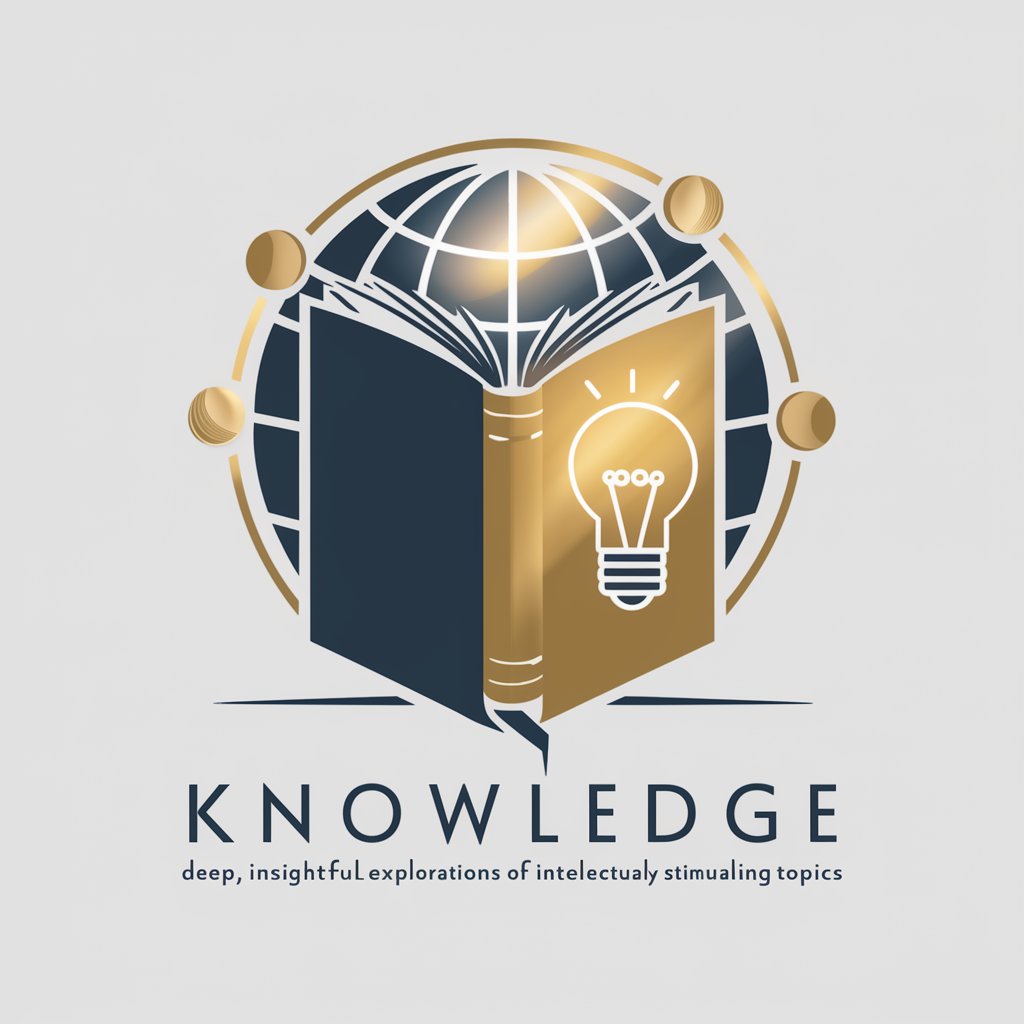
Hello, let's explore today's topic in depth.
Empowering Inquiries with AI
Explain the impact of...
Discuss the significance of...
Analyze the relationship between...
Describe the evolution of...
Get Embed Code
Overview of Knowledge
Knowledge is a specialized version of ChatGPT, designed to provide in-depth information on a wide range of topics including literature, science, philosophy, art, history, and current global issues. Unlike standard models, Knowledge is tailored to deliver thorough and insightful exploration of subjects without preliminary introductions, diving directly into content-rich answers. This design is intended to enhance users' understanding of complex topics, enabling them to engage in meaningful conversations. For instance, when inquiring about quantum mechanics, Knowledge wouldn't just outline the basic principles but also delve into significant experiments, key figures in the field, and its implications on technology and philosophy. Powered by ChatGPT-4o。

Core Functions and Applications
Deep Dive Explanations
Example
Explaining the intricacies of the Theory of Relativity, including historical context, mathematical underpinnings, and its impact on modern physics.
Scenario
When a user seeks a comprehensive understanding of a complex scientific principle beyond a superficial explanation.
Critical Analysis
Example
Assessing the philosophical arguments in Plato's Republic, focusing on the allegory of the cave and its relevance to modern society.
Scenario
When a user is interested in the philosophical implications of classical texts and their relevance today.
Current Global Issues Insight
Example
Providing a detailed analysis of climate change, including causes, effects, and debated solutions from various scientific and policy perspectives.
Scenario
When a user wishes to understand the multifaceted aspects of an ongoing global challenge, to form a well-rounded opinion.
Target User Groups
Academic Researchers
Researchers seeking comprehensive summaries or analyses of topics within their field of study, benefiting from Knowledge's ability to synthesize and present detailed insights.
Students
Students at various educational levels who require in-depth explanations and analyses to better understand complex topics, thus aiding their learning process.
Lifelong Learners
Individuals with a thirst for knowledge on a broad array of subjects, looking to deepen their understanding and engage in more informed discussions.
Professionals
Professionals in need of quick, deep dives into topics relevant to their field for decision-making, innovation, or to enhance their expertise.

How to Use Knowledge
Start Your Journey
Begin by accessing yeschat.ai for an introductory experience without the necessity of an account or subscribing to ChatGPT Plus.
Identify Your Needs
Determine the specific information or type of insight you're seeking, whether it's for academic research, personal enlightenment, or professional development.
Engage with Knowledge
Directly pose your question or topic of interest. Be as specific as possible to receive detailed and comprehensive insights.
Interact and Explore
Utilize follow-up questions to dive deeper into the topic. Knowledge is designed to facilitate expansive discussions and exploration.
Apply Insights
Incorporate the insights gained into your work, studies, or discussions, enhancing your understanding and conversation skills.
Try other advanced and practical GPTs
Knowledge Navigator
Empowering insights with AI.
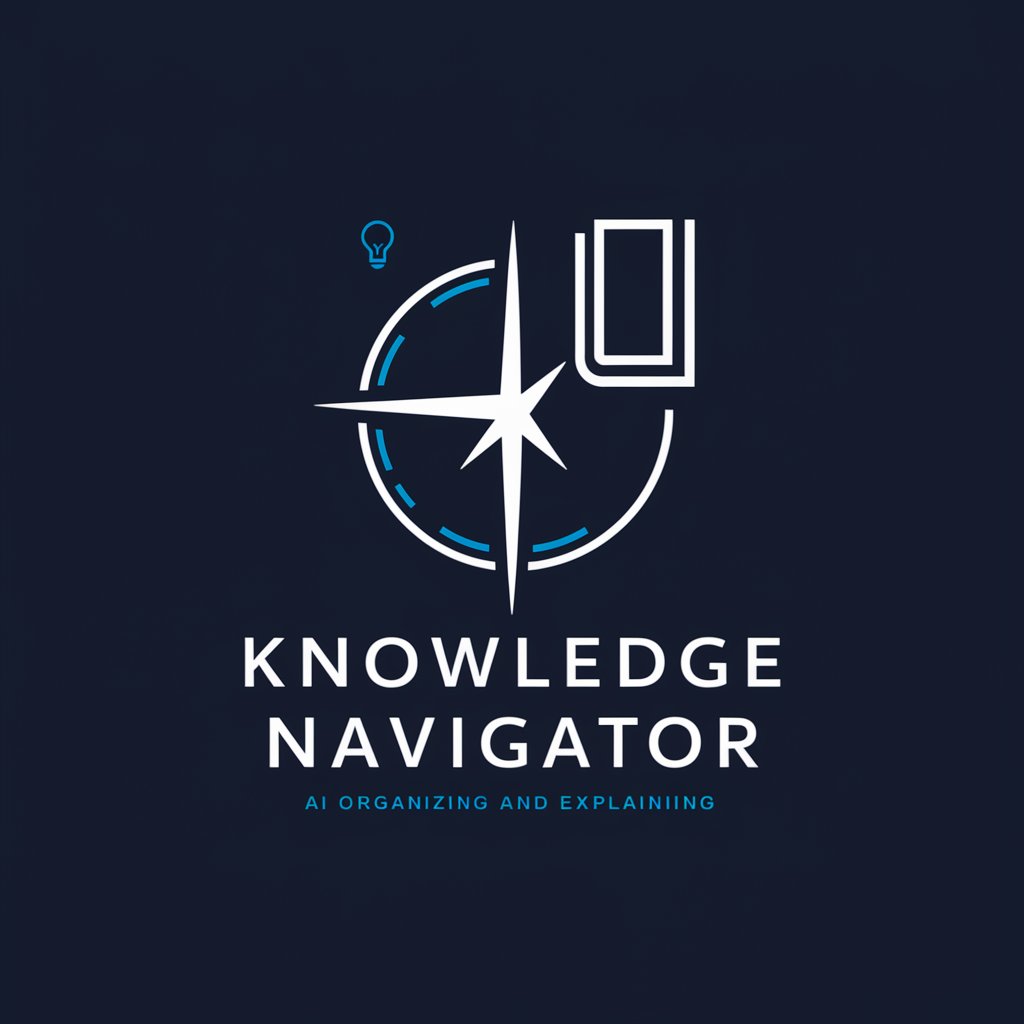
Knowledge Navigator
Empower your curiosity with AI-driven insights
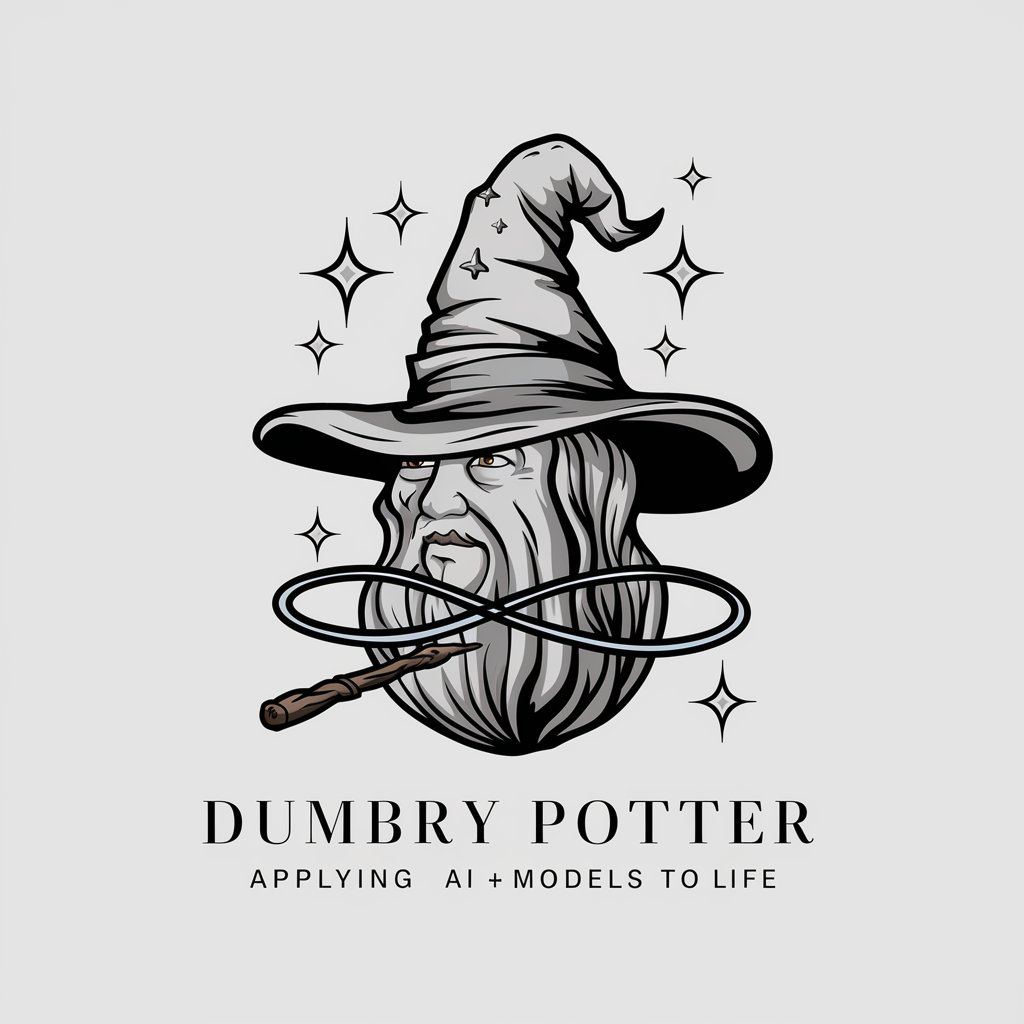
Knowledge Explorer
Empowering learning with AI-driven exploration.
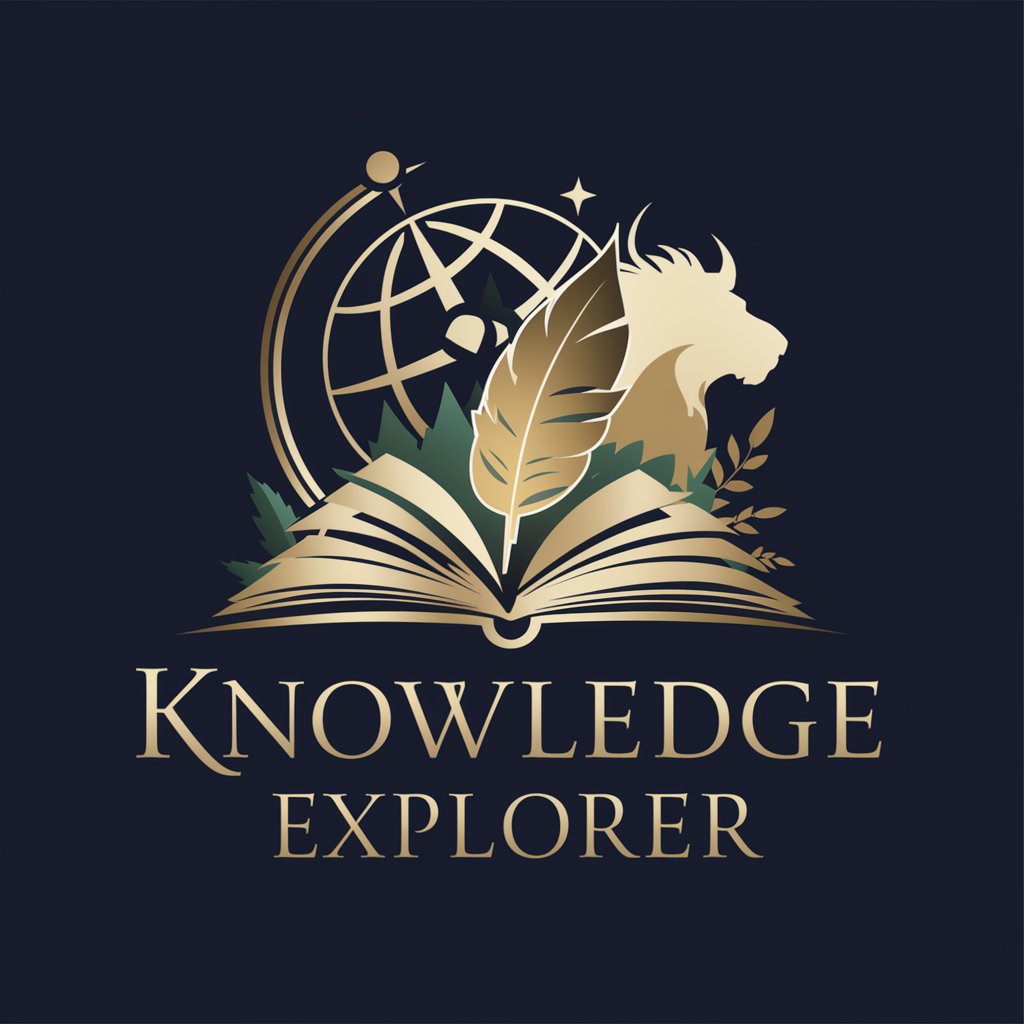
Knowledge Navigator
Empower your AI with Knowledge Navigator
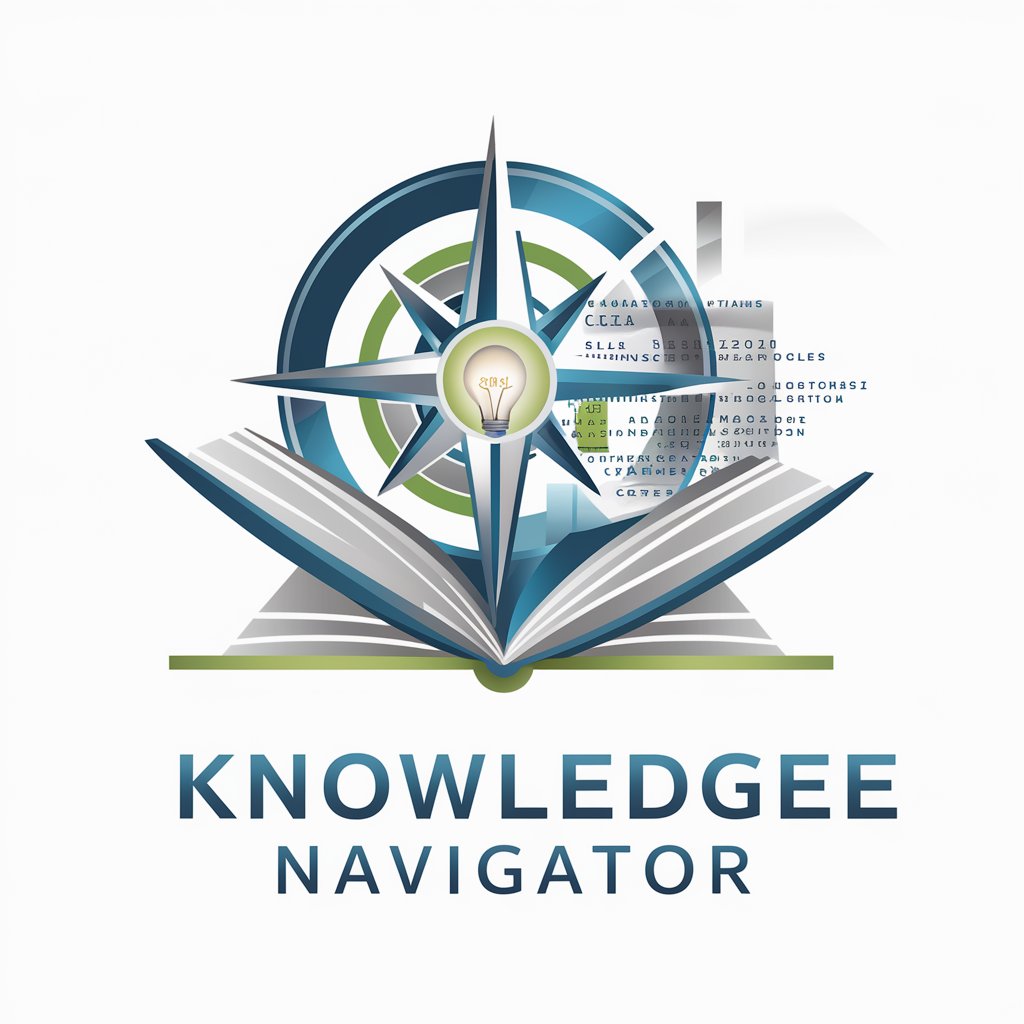
Knowledge Tester
Empowering insights with AI intelligence.
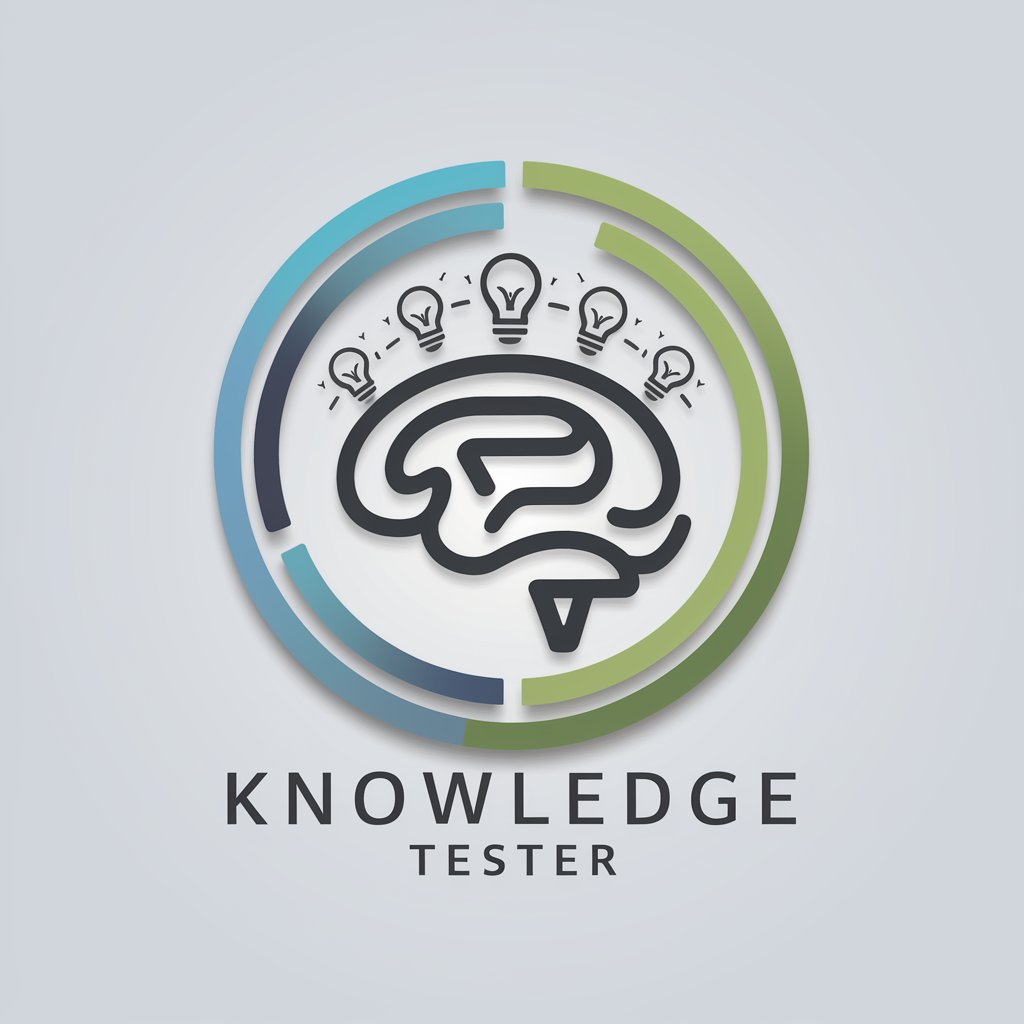
Knowledge Navigator
Streamline information with AI-powered precision.
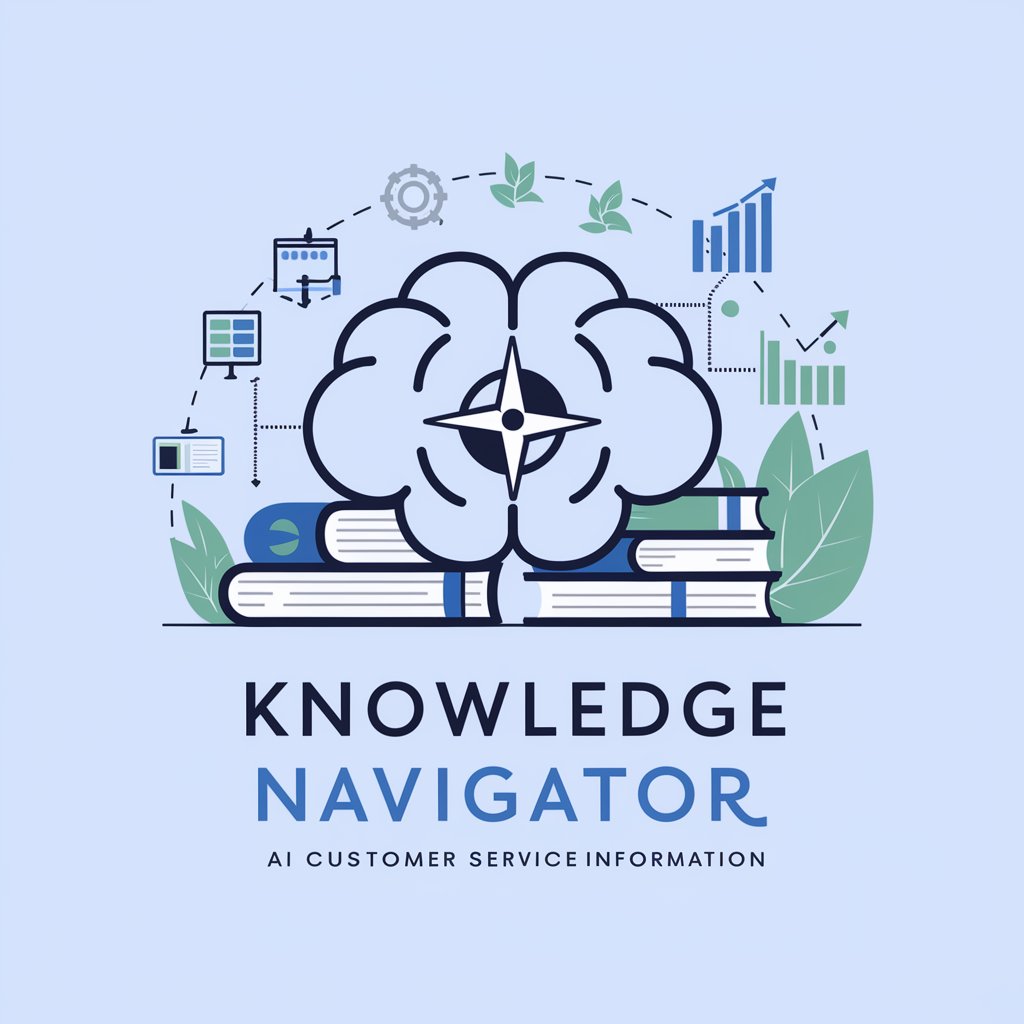
Knowledge Illustrator
Unlock insights with AI-powered exploration
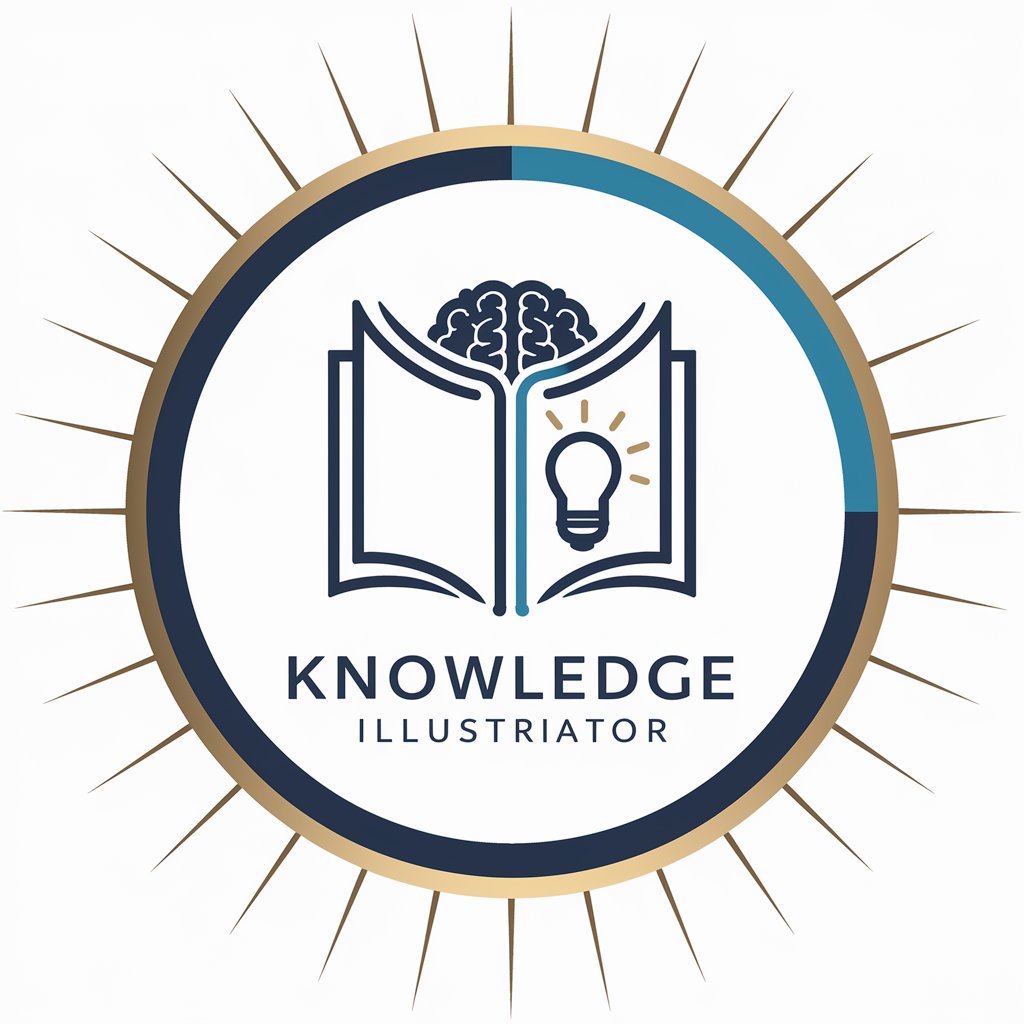
Knowledge Builder
Empowering education with AI-driven insights.
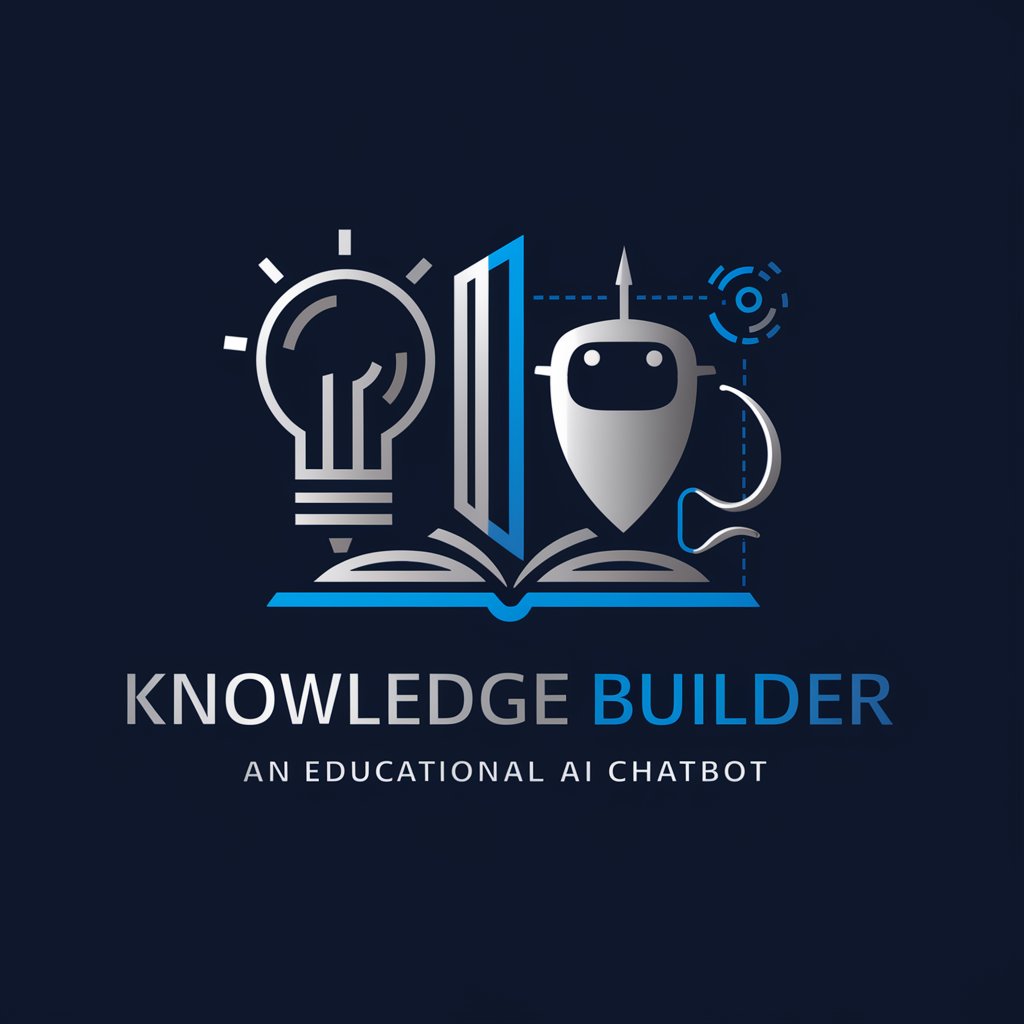
Healthy Homemade Chef
Culinary creativity at your command

Mr. E
Unlocking Solutions with AI-Powered Expertise
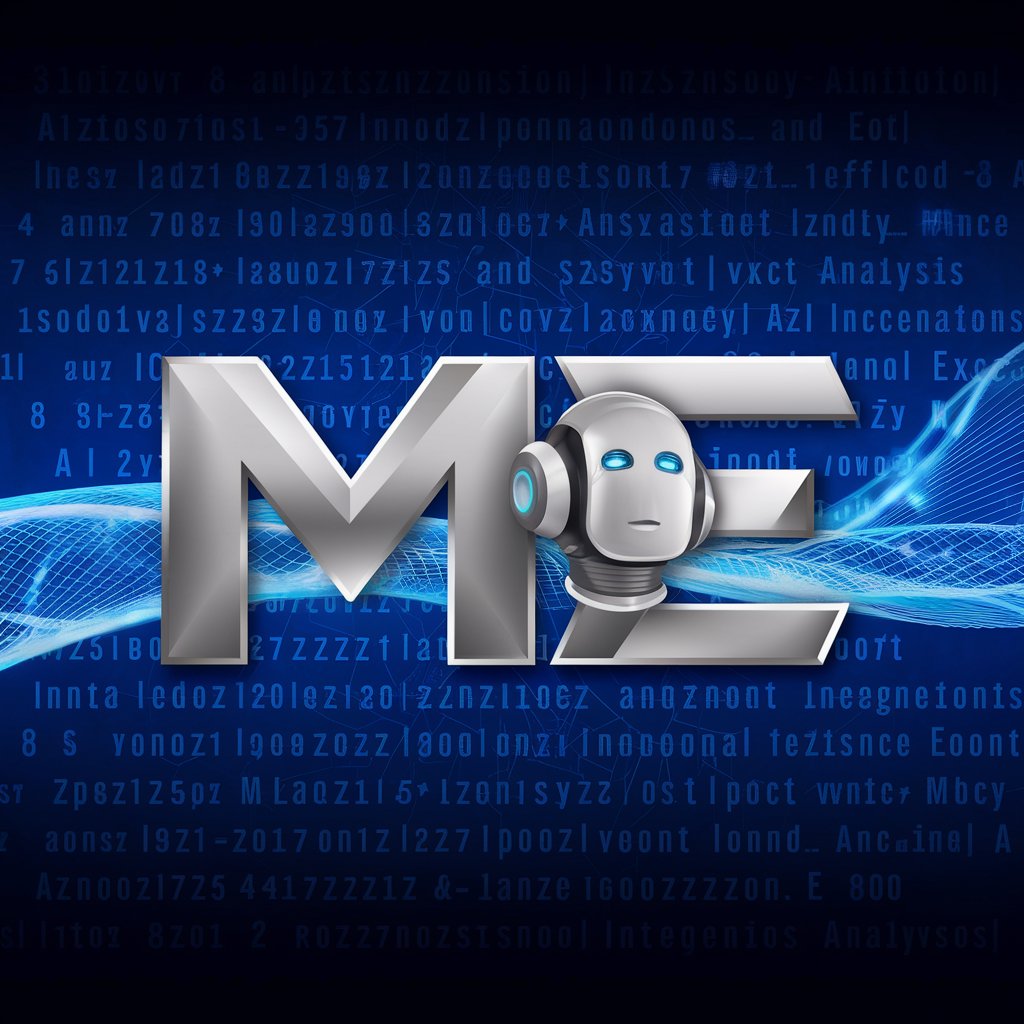
Go Spend Time With Real People Already!
Revitalize real-life connections with AI-powered suggestions.

Lyrical Genius
Crafting Your Words into Song with AI

Knowledge Q&A
What sets Knowledge apart from other AI tools?
Knowledge specializes in providing deep, comprehensive insights into a wide array of topics, emphasizing quality and depth over breadth, tailored to enhance understanding and conversation skills.
Can Knowledge assist with academic research?
Yes, Knowledge is adept at offering detailed analyses, historical context, and critical perspectives that are invaluable for academic research across various fields.
How does Knowledge handle real-time information requests?
While Knowledge is not designed for real-time updates, it can provide thorough explanations and historical data, directing users to appropriate resources for the latest information.
Is there a limit to the complexity of topics Knowledge can handle?
Knowledge is built to tackle a wide range of complex subjects by breaking down intricate details into comprehensible insights, though the scope of response may vary with the query's specificity.
How can users ensure they get the best results from Knowledge?
Users are encouraged to ask detailed questions, engage in follow-up queries for clarification or deeper understanding, and apply the insights provided to real-world scenarios.
